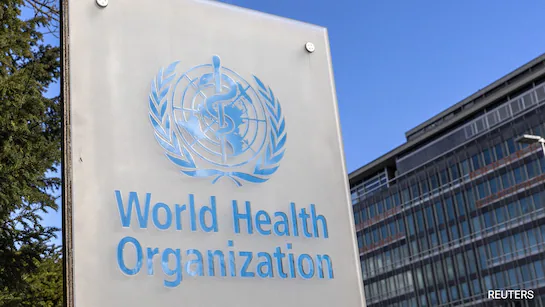By Aminu Adamu
Geneva
In a watershed moment for global public health, the World Health Assembly (WHA) on Tuesday unanimously adopted the world’s first-ever Pandemic Agreement — a landmark accord designed to make future pandemic responses more equitable, coordinated, and effective.
The adoption of the agreement, which followed over three years of intense negotiations triggered by the failures and inequities exposed during the COVID-19 pandemic, marks a significant turning point in international health diplomacy. With no objections and only 11 abstentions, 124 member states approved the agreement in Committee before its formal adoption in the WHA plenary session.
“The world is safer today,” declared WHO Director-General Dr. Tedros Adhanom Ghebreyesus following the vote. “This Agreement is a victory for public health, science, and multilateral action. It will ensure we, collectively, can better protect the world from future pandemic threats.”
A Global Wake-Up Call
The new Pandemic Agreement was born out of a collective recognition that the world was ill-prepared for COVID-19, resulting in disproportionate suffering in low- and middle-income countries. From shortages of vaccines to inequitable access to therapeutics and diagnostics, global disparities defined the last pandemic.
“The WHO Pandemic Agreement offers a once-in-a-lifetime opportunity to build on lessons learned from that crisis,” said Dr. Teodoro Herbosa, President of the 78th World Health Assembly and the Philippines’ Health Secretary. “Now that the Agreement has been brought to life, we must act with the same urgency to implement its critical elements.”
A Blueprint for Future Pandemic Response
The agreement outlines a comprehensive framework for pandemic prevention, preparedness, and response. At its core is a commitment to ensure equitable and timely access to vital health tools — including vaccines, therapeutics, and diagnostics — especially for developing nations.
Crucially, the agreement respects national sovereignty. It explicitly states that the World Health Organization cannot impose mandates on member states regarding domestic health policies or actions such as lockdowns, travel bans, or vaccine mandates.
Instead, the Agreement provides tools and guidelines for international coordination while preserving the autonomy of individual countries.
Next Steps: Sharing Pathogens, Sharing Benefits
The resolution adopted by the Assembly sets the stage for the creation of a Pathogen Access and Benefit Sharing system (PABS). This system will govern how biological samples and data on pathogens are shared globally, and how the resulting medical products — such as vaccines — are equitably distributed.
Pharmaceutical companies that participate in the PABS system will be required to make 20% of their real-time production of pandemic-related health products available to WHO for equitable distribution. Allocation will be based on public health risk and need, with special attention to the most vulnerable populations.
Negotiations on PABS will begin through an Intergovernmental Working Group and are expected to be concluded by next year’s Assembly. Once finalized, the Agreement will be open for signature and ratification, entering into force after 60 countries have ratified it.
Building a Safer Future
The Pandemic Agreement also paves the way for the creation of a Coordinating Financial Mechanism and a Global Supply Chain and Logistics Network (GSCL). These bodies will help remove barriers to access and ensure rapid and affordable delivery of pandemic-related health products to countries in need during health emergencies.
This is only the second time in WHO’s history that a global legal agreement has been negotiated under Article 19 of its Constitution — the first being the 2003 Framework Convention on Tobacco Control.
For global health experts, the adoption of the Pandemic Agreement is more than just a policy achievement — it’s a symbol of global solidarity and a powerful message that the world is determined to never repeat the failures of COVID-19.
“Our citizens, societies, and economies must not be left vulnerable to suffer losses like those endured during COVID-19,” Dr. Tedros emphasized. “With this agreement, we have a real chance to reshape the future.”
